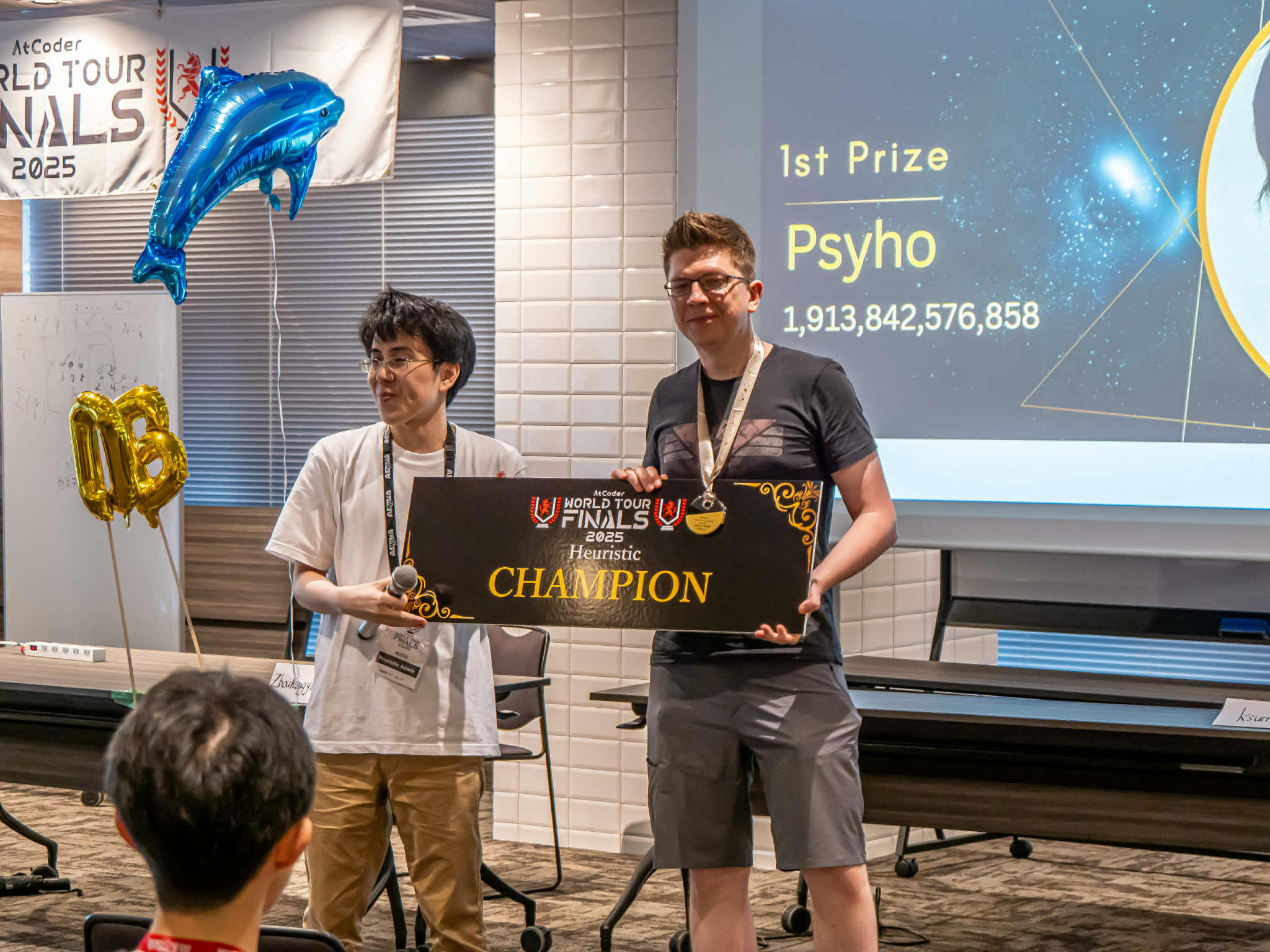Human Triumph Over AI at AtCoder World Tour Finals: Inside Psyho’s Ten-Hour Coding Marathon

Human Triumphs Over Machine: Psyho Edges Out AI for World Coding Crown
Stamina, Strategy, and Skill Define a Ten-Hour Showdown
A new milestone in competitive programming was set when Przemysław Dębiak, better known in coding circles as Psyho, outperformed a leading artificial competitor at the highly anticipated AtCoder World Tour Finals in Tokyo. This year’s event unfolded as a dramatic duel, pitting the creativity and endurance of human talent against the relentless logic of a state-of-the-art learning model. Across ten intense hours, Psyho accumulated over 1.8 trillion points, eclipsing the machine’s total by nearly ten percent—an outcome hailed by many as both a testament to human resilience and a snapshot of the evolving competition between flesh and algorithm.
The contest’s structure demanded far more than rote calculation. Participants confronted a suite of NP-hard optimization problems, specifically a scenario involving robotic pathfinding on a complex 30×30 grid. With conventional algorithms falling short, victory relied on the use of sophisticated heuristics, mental agility, and rapid adaptation. The rules leveled the playing field: no outside resources, no external code libraries—only pure wit and coding grit. As the hours wore on, fatigue became a very real adversary. Dębiak confessed to having barely slept in the days leading up to the marathon, describing himself as “completely exhausted” after the ordeal. These high-stakes conditions forced each finalist to balance efficiency with creativity, pushing personal and technical limits in pursuit of elusive optimal solutions.
Man Versus Machine: Testing the Limits of Intelligence
The runner-up, an advanced artificial agent internally developed by OpenAI, entered the competition under the pseudonym OpenAIAHC. Unlike the publicly accessible coding tools many are familiar with, this particular model was deployed specifically for the tournament as a demonstration of autonomous problem-solving in the wild. With its performance nearing the theoretical limits of automated reasoning in open-ended scenarios, many experts saw this contest as a crucial barometer for measuring the present capabilities of machine intelligence.
The recent explosion in coding automation is well documented: in 2023, similar systems were solving just a small fraction of presented tasks. Less than a year later, completion rates soared to nearly three-quarters of all presented problems. OpenAI’s current flagship ranks among the top contenders worldwide, emphasizing just how rapidly these technologies have evolved. Yet the shortfall here—where the artificial intelligence trailed Dębiak by a significant margin—highlights the elusive nature of certain cognitive skills. Strategic leaps, moment-to-moment intuition, and the ability to “feel” a solution remain deeply human traits, at least in challenges lacking well-defined paths.
Context, Terminology, and Future Implications
Understanding the gravity of this result calls for a closer look at some of the underlying terminology and traditions. The AtCoder World Tour Finals, renowned for its two distinct divisions (Heuristic and Algorithm), invites only the most decorated specialists from a year-long qualification circuit. The “heuristic” label signals a focus on problems that cannot be solved by brute force in reasonable time, instead demanding clever, “good-enough” approaches—exactly the kind of work where human contestants have traditionally thrived. With over a decade of experience tackling such challenges, Dębiak entered the event as an established name, boasting accolades from the world’s most prestigious algorithmic competitions.
What sets this year’s outcome apart lies in the global context. The presence and performance of an unreleased, high-profile learning system offered a rare opportunity to observe the intersection of human ingenuity and algorithmic brute force. While automated coders are rapidly closing the gap in routine tasks, moments like this highlight unique strengths still embodied by lived experience and creative flexibility. As the landscape of computational intelligence continues to accelerate, events like these not only serve as competitive benchmarks but also ignite discussions about what it means to be truly innovative—and where the next frontier of coding mastery may lie.
